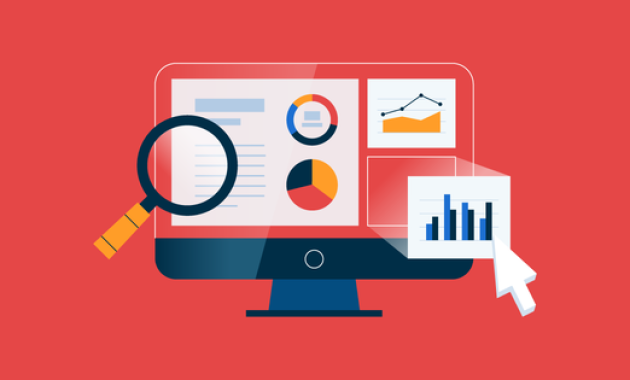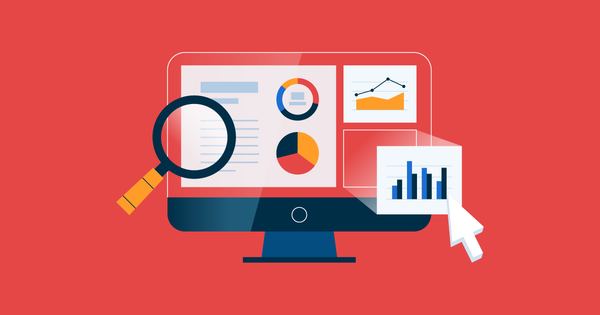
Empowering Decisions: The Rise of Self-Service Business Intelligence Software
In today’s data-driven world, the ability to make informed decisions quickly is paramount. Businesses of all sizes are inundated with data, but raw data is useless without the tools to analyze and understand it. This is where self-service business intelligence software steps in, providing decision-makers with the power to access, analyze, and visualize data without relying heavily on IT or data science teams. The landscape of business intelligence has shifted dramatically, and self-service business intelligence software is at the forefront of this change.
This article will delve into the world of self-service business intelligence software, exploring its benefits, key features, and how it’s transforming the way businesses operate. We’ll examine the challenges and considerations for implementation, providing insights to help organizations navigate the complexities of this powerful technology.
The Democratization of Data: Why Self-Service BI Matters
Historically, business intelligence was the domain of highly specialized experts. Data analysis required coding, complex queries, and a deep understanding of database structures. This created bottlenecks, slowing down the decision-making process and limiting access to crucial insights. Self-service business intelligence software breaks down these barriers, empowering business users with the tools they need to explore data on their own terms.
This democratization of data has several significant advantages:
- Faster Decision-Making: Users can generate insights and reports in minutes, rather than waiting days or weeks for IT support.
- Increased Agility: Businesses can respond quickly to market changes and opportunities by analyzing data in real-time.
- Improved Collaboration: Data becomes accessible across departments, fostering collaboration and alignment.
- Reduced Reliance on IT: Frees up IT resources to focus on more strategic initiatives.
- Enhanced Data Literacy: Empowers users to understand and interpret data, leading to better decision-making.
The core benefit of self-service business intelligence software is the ability to put data directly into the hands of decision-makers. This allows them to explore different scenarios, test hypotheses, and make data-driven choices with greater confidence. This is particularly crucial for competitive advantage.
Key Features of Self-Service Business Intelligence Software
Self-service business intelligence software encompasses a range of features designed to make data analysis accessible and intuitive. Some of the most common and valuable features include:
Intuitive User Interface
The best self-service business intelligence software solutions offer user-friendly interfaces. These interfaces typically feature drag-and-drop functionality, visual dashboards, and easy-to-understand data visualizations. This makes it simple for users with limited technical expertise to explore and analyze data.
Data Connectivity
Data connectivity is a critical component. The software needs to connect to various data sources. This may include databases, spreadsheets, cloud services, and other applications. Robust connectivity ensures users can access all the data they need to make informed decisions.
Data Preparation and Transformation
Real-world data is often messy and inconsistent. Self-service business intelligence software often includes data preparation tools. These tools allow users to clean, transform, and reshape data. This ensures data is accurate and ready for analysis.
Data Visualization
Data visualization is essential for understanding complex data. The software provides a range of charts, graphs, and other visual tools. These tools help users identify patterns, trends, and insights quickly and easily.
Reporting and Dashboards
Self-service business intelligence software allows users to create reports and dashboards. These tools summarize key data and track performance metrics. These reports and dashboards can be shared with other users within the organization.
Mobile Access
Increasingly, self-service business intelligence software provides mobile access. This allows users to access data and insights from anywhere. This capability improves decision-making on the go.
Collaboration and Sharing
Effective self-service business intelligence software facilitates collaboration. Users can share reports, dashboards, and insights with colleagues. This enhances communication and alignment across departments.
Choosing the Right Self-Service Business Intelligence Software
Selecting the right self-service business intelligence software requires careful consideration of several factors. Businesses should evaluate their specific needs and priorities when making a decision. Key considerations include:
Ease of Use
Choose software with an intuitive interface and minimal training requirements. This will ensure broad adoption across your organization.
Data Source Compatibility
Ensure the software connects to all the data sources you need. This may include databases, spreadsheets, cloud services, and other applications.
Scalability
Consider the scalability of the software. As your data volume grows, the software must be able to handle the increased load.
Features and Functionality
Evaluate the features offered by the software. Ensure it meets your specific data analysis and reporting needs.
Security
Data security is paramount. Choose software that offers robust security features, including data encryption and access controls.
Cost
Consider the total cost of ownership. This should include software licensing, implementation, and training costs.
Vendor Reputation and Support
Research the vendor’s reputation and customer support. Choose a vendor with a strong track record and responsive support team.
Implementation Challenges and Best Practices
Implementing self-service business intelligence software is not without its challenges. However, careful planning and execution can minimize these hurdles. Common challenges include:
- Data Quality: Poor data quality can undermine the accuracy of your analysis.
- User Training: Ensure users receive adequate training to use the software effectively.
- Data Governance: Establish clear data governance policies to ensure data consistency and security.
- Resistance to Change: Overcome resistance to adopting new tools and processes.
- Integration Complexity: Integrating the software with existing systems can be complex.
To overcome these challenges, consider the following best practices:
- Start Small: Begin with a pilot project to test the software and refine your implementation plan.
- Define Clear Goals: Establish clear goals and objectives for your BI initiative.
- Prioritize Data Quality: Invest in data cleansing and data governance processes.
- Provide Comprehensive Training: Offer ongoing training and support to users.
- Foster a Data-Driven Culture: Encourage data-driven decision-making throughout the organization.
- Seek Expert Guidance: Consider consulting with BI experts to assist with implementation.
The Future of Self-Service Business Intelligence
The future of self-service business intelligence software is bright. As technology continues to evolve, we can expect to see even more advanced features and capabilities. Key trends include:
- Artificial Intelligence (AI) and Machine Learning (ML) Integration: AI and ML will automate data analysis and provide predictive insights.
- Enhanced Data Visualization: More sophisticated and interactive data visualizations will emerge.
- Cloud-Based Solutions: Cloud-based BI solutions will continue to grow in popularity.
- Mobile BI: Mobile access will become even more important for decision-makers.
- Increased Data Literacy: Emphasis will be placed on improving data literacy. This will empower users to make better decisions.
These advancements will make self-service business intelligence software even more powerful. This will further empower decision-makers and drive business success. [See also: The Impact of AI on Business Intelligence]
Conclusion
Self-service business intelligence software is no longer a luxury. It is a necessity for businesses seeking to thrive in today’s competitive landscape. By providing decision-makers with easy access to data and powerful analytical tools, this software empowers organizations to make informed decisions. The benefits are clear: faster decision-making, increased agility, and improved collaboration. As technology continues to advance, self-service business intelligence software will play an increasingly important role in shaping the future of business.
By embracing this technology, businesses can unlock the full potential of their data. This will lead to better outcomes and a stronger competitive advantage. Invest in self-service business intelligence software. Make data-driven decisions. This will drive your business toward success.

